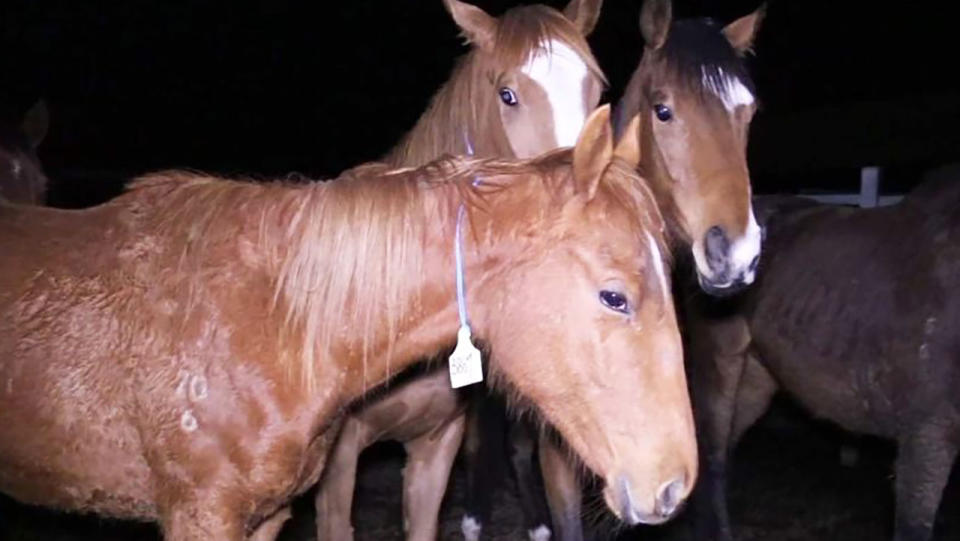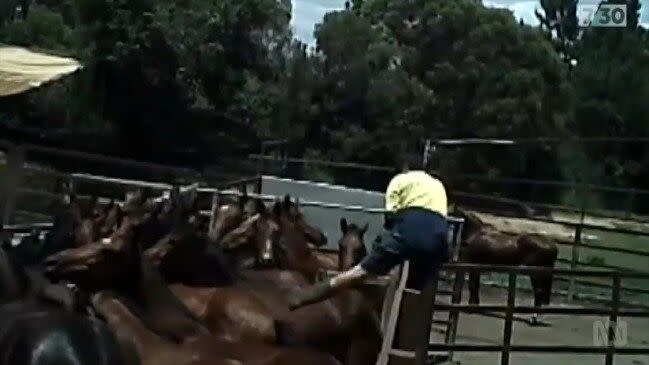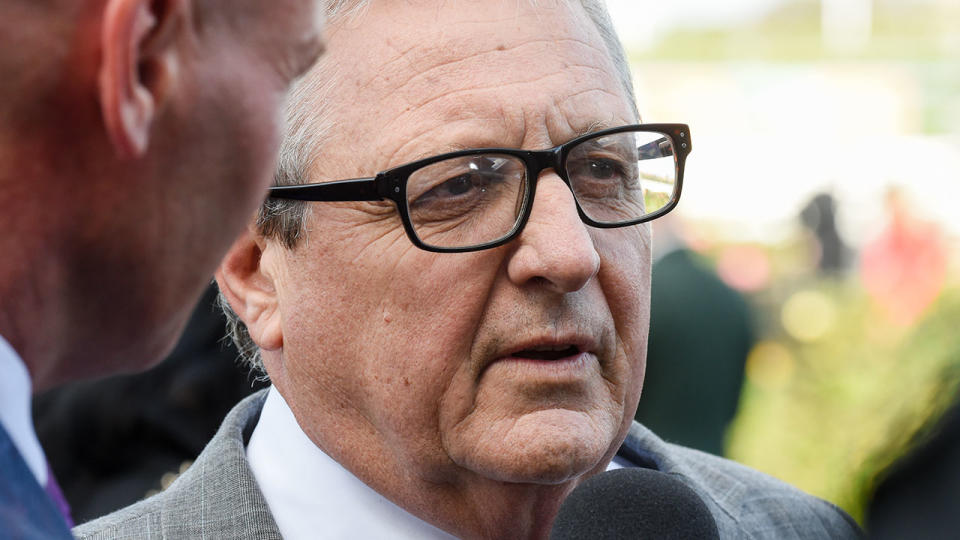'Broken-hearted': Racing industry responds to 'appalling' slaughter allegations

One of the biggest names in the Australian horse racing industry has expressed his disgust over a bombshell ABC report about the slaughter of retired horses.
A two-year ABC investigation has revealed allegations hundreds of Australian racehorses are being sent to the slaughterhouse.
The ABC says Racing Australia's official data claims around 34 horses every year end up at slaughterhouses, a figure amounting to less than one per cent of retiring racehorses.
However, the national broadcaster says a two-year investigation, culminating in a disturbing report that aired on Thursday's edition of 7.30, shows the number is much higher.

Elio Celotto from the Coalition for the Protection of Racehorses told the ABC that about 4000 racehorses had been killed in one abattoir alone.
"The racing industry has hidden behind bogus studies they commissioned and data collected from a compulsory retirement form claiming that less than 0.5 per cent of racehorses are sent to slaughter," Celotto said.
"They have now been proven wrong and must own up to the fact that they have a serious welfare problem."
Hall of Fame trainer Lee Freedman has since taken to social media in shock.
“I am broken hearted at the ABC report. If we don’t make real changes the court of public opinion will bury racing,” Freedman tweeted.
I am broken hearted at the ABC report. If we don’t make real changes the court of public opinion will bury racing.
— Lee Freedman (@freedman_lee) October 17, 2019
Animal welfare and behaviour scientist Professor Paul McGreevy, who described the treatment of horses as “absolutely appalling”, told the ABC there was no way the racing industry could defend the behaviour.
"This is a clear breach of everything the industry has told us," he said.
The investigation also aired accusations of multiple instances of animal cruelty at the slaughterhouses racehorses are being sent to.
The CPR said up to 220 horses are being killed weekly at a Queensland abattoir and on average 56 per cent are racehorses.

"With another abattoir that also kills horses and another 33 knackeries, we estimate the real number to be more than 10,000 (a year)," Mr Celotto said in a statement.
The ABC says despite racing's peak body implementing rules requiring the registration and tracking of horses from their birth to their retirement, racehorses are still being killed in slaughterhouses on a weekly basis
Racing NSW CEO Peter V'landys tod the ABC he was not aware of any NSW racehorses being sent to slaughterhouses.
However, he said if it is occurring the state body would "put the full force of the law" against offenders.
Racehorse breeders call for transparency
Thoroughbred Breeders Australia says those governing the industry must act along with participants to reinforce the post-racing programs which include rehoming retired horses.
"I am appalled by the vision broadcast," TBA chief executive Tom Reilly said.
"All horses, whether thoroughbreds or not, deserve to be treated humanely and with dignity.
"The full force of the law should be brought down on anybody in the footage shown mistreating those horses.
"The thoroughbred industry needs a full and frank discussion about what happens to horses when they leave the industry.
"And while there is good work being done to rehome horses, we have to look at how participants and regulators can and must do better.
"We also need to have confidence in the numbers the industry publishes about what happens to animals when they leave racing."
In October 2017, Racing NSW introduced a rule to track horses from cradle to grave and to ban sending horses to slaughter.
A percentage of prize money from racing goes to horse welfare.
Racing NSW has bought two properties in the state for retraining of racehorses for other pursuits including equestrian activities.
Tonight's #abc730 was absolutely devastating. We need Special Commissions of Inquiry in each state to investigate wastage and animal cruelty in horse racing. #auspol
— Mehreen Faruqi (@MehreenFaruqi) October 17, 2019
Like you, we're horrified - but sadly not surprised - by revelations about the Australian #horseracing industry on #ABC730 tonight 1/7
— RSPCA Australia (@RSPCA) October 17, 2019
It's harrowing viewing, but every Australian who watches #racing, who bets on racing, and every company that sponsors #horseracing, needs to know what they are supporting #abc730 2/7
— RSPCA Australia (@RSPCA) October 17, 2019
with AAP
